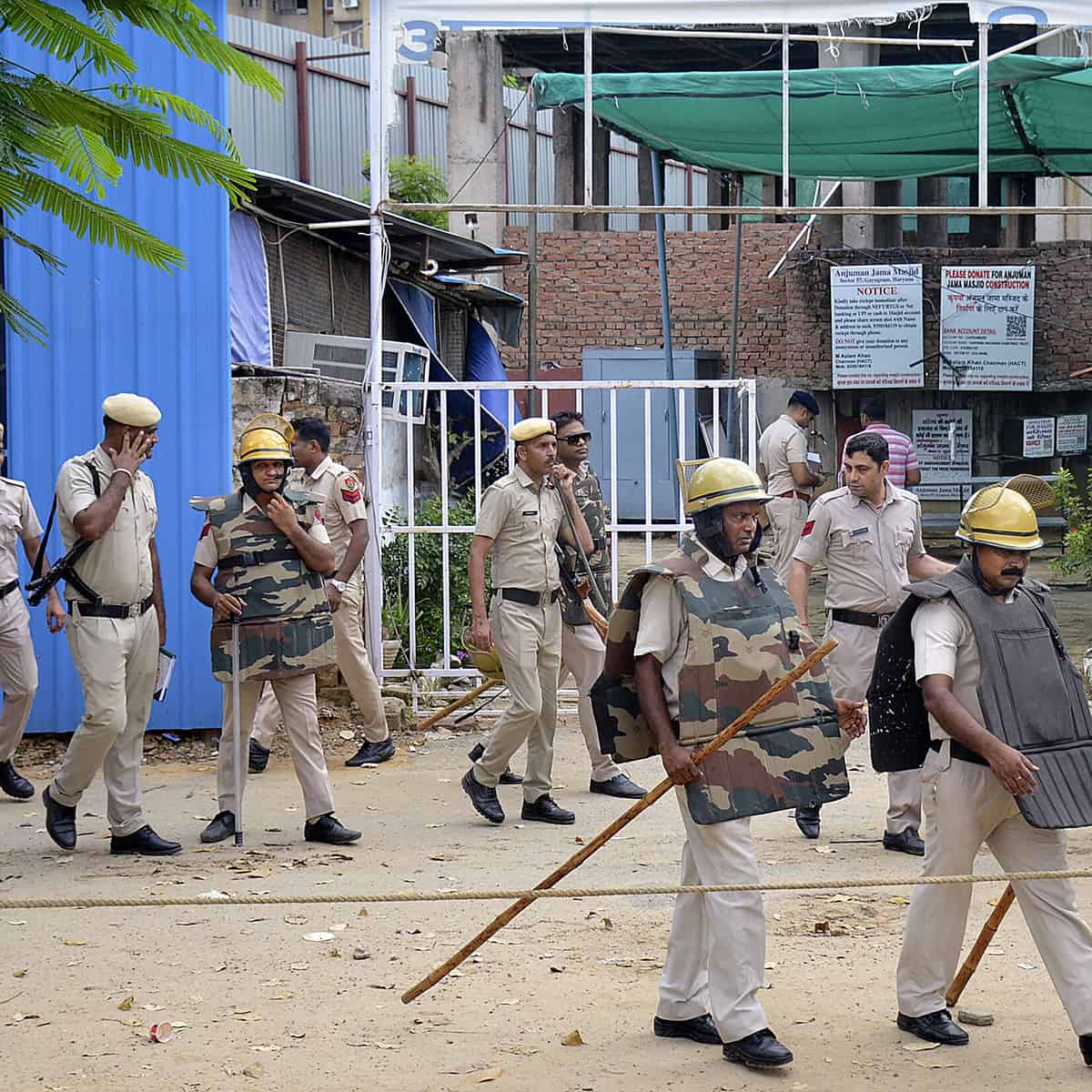
Hyderabad: Muslims are at the receiving end yet again. The sudden surge in communal violence and targeted attacks have put the largest religious minority in the country in a precarious situation. The gunning down of three Muslim passengers, including the RPF Assistant Sub-Inspector, Tika Ram Meena, in the Jaipur-Mumbai train at point blank range by an RPF constable, Chetan Singh, has sent shock waves through the community. Close on its heels comes the killing of a young Imam following an attack on a mosque in Gurugram by an armed mob – indicating a distressing pattern of targeted attacks against minorities. These incidents are a clear pointer to the growing anti-Muslim sentiments in a section of society. It also shows what unchecked stoking of anti-Muslim hatred can lead to.
What is shocking is the unprovoked attack and communal remarks made by the RPF constable while shooting down the Muslim. Images going viral on social media are both disturbing and distressing, to say the least. While the gruesome killings have evoked all-round condemnation, the Hyderabad MP, Asaduddin Owaisi, has termed it a case of a ‘terror attack’. The Indian American Muslim Council (IAMC) has dubbed it a politically inspired hate crime. Shockingly there is no official statement till now. The motive behind the dastardly attack also remains a mystery. Silence and inaction on the part of the government, many feel, only encourage such communal bigots.
“Chetan Singh is a hot-headed man given to altercation. He just lost temper and shot his senior then fired at whomever he saw”, remarked a senior RPF officer by way of explanation.
If the communal rant of the accused, Chetan Singh caught in the purported video clip is to be believed then the minorities who want to live in India have no choice but to vote for ‘Modi and Yogi’. In other words, what it means is that one would have to pay a heavy price for not towing the saffron party line.
“Chetan Singh could not have made himself clearer. He declared India a Hindu nation by saying that if you want to live in India, you must support the Hindu supremacist politicians Narendra Modi and Yogi Adityanath,” says Rasheed Ahmed, Executive Director, IAMC.
He also condemned the reign of terror let loose by the supremacist mob in Haryana where Maulana Saad, an Imam, was killed and Muslim-owned businesses were vandalized and torched.
The train tragedy and the attack on a mosque in Nuh, Haryana, have sparked fear and panic in the community. The silence of the government on these issues only adds to the distress, raising questions about its stance on communal harmony and the safety of minority communities. It is crucial to address the underlying factors that fuel such hatred and discrimination, including social, political, and economic factors. Leaders ought to condemn such acts unequivocally and work towards fostering a more inclusive and tolerant society.
The attack on the Jaipur-Mumbai train has not only caused loss of precious lives but also raises questions about the safety of railway travel. Ensuring the security of passengers, regardless of their religious or ethnic background, is essential to restore public confidence in the transportation system.
The silence of the government in the face of these incidents has left many in the Muslim community feeling marginalized and unheard. It is imperative for the government to address these concerns promptly and transparently, demonstrating its commitment to safeguarding the rights and security of all citizens.
With the parliament elections scheduled next year, there are concerns that the recent surge in communal violence may be a prelude to attempts at polarizing the electorate. Political parties must refrain from using divisive tactics and instead focus on promoting unity and social cohesion. The protection of minority rights is a fundamental aspect of a thriving democracy, and any attempt to exploit communal tensions for political gains must be condemned.
The frequent bouts of violence against minorities, particularly Muslims, many feel, is the result of invoking anti-Muslim feelings in the name of nationalism. What follows is the spate of communal tensions relating to beef lynching, hijab controversy, halal, bulldozer justice, and now UCC. All these issues have communally polarised the environment and threaten to tear apart the country’s unique syncretic social fabric.
Not long ago the RSS chief, Mohan Bhagwat stated that the Indian Muslims are the happiest lot in the world. But nothing can be farther from the truth given the pall of gloom that has descended on the community and the panic that has gripped it.



